As an Amazon Associate I earn from qualifying purchases.
Mixiotes (meesh-YOTE-es) are Mexico’s version of foods cooked in parchment. It’s an ancient, versatile way to cook. Here’s a recipe and some tips and tricks to make them at home.
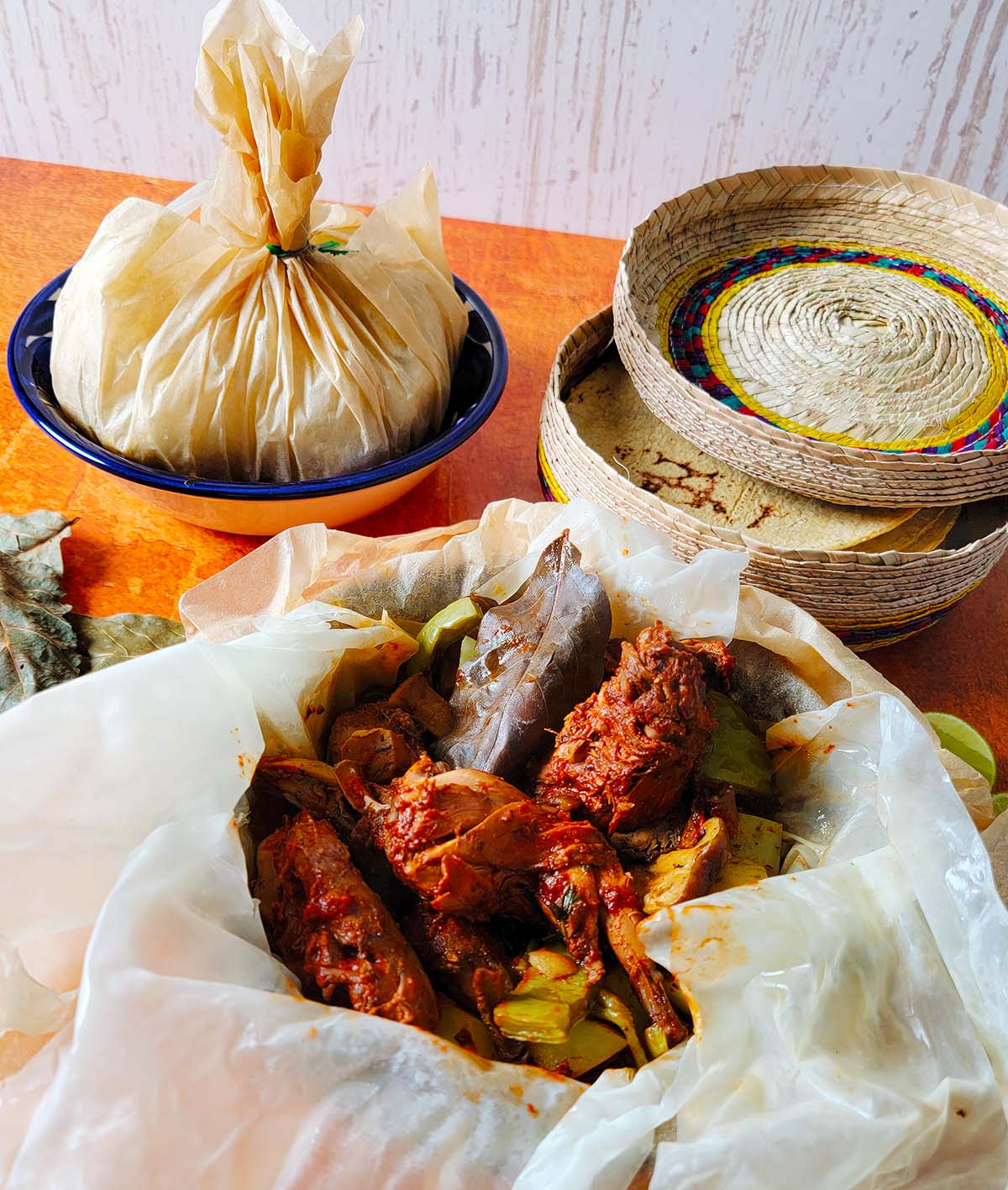
It is believed that mixiotes originated in central Mexico, in places like Hidalgo and Tlaxcala. The method predates the Spanish arrival, and may be thousands of years old.
It’s pretty wild, when you think about it: There’s a thin membrane on the inside of the giant leaves of the agave plant that you can pull off in one or two pieces if you are careful. Turns out this membrane is 1) flexible when wet, 2) dries well, and 3) imparts a lovely flavor to whatever is cooked inside.
Cooks would then tie the bundles up and steam them in pits along with things like tamales. When they’re ready to eat, you open the bundle, enjoy the aroma, and eat your mixiotes with corn tortillas.
The process remains popular in central Mexico, so much so that in many of the Mexican states there, it’s now illegal to harvest the hojas para mixiotes because stripping that membrane often kills the agave, which can take a dozen years of more to mature.
It’s a wonderful byproduct of mezcal or tequila making, however, so you can still find the hojas here and there. I found mine in the Hidalgo Market in Tijuana.
How to Make Mixiotes
Chances are you aren’t close to an actual market in Mexico, and I’ve never once seen hojas para mixiotes in a Latin market in the US. So what to do? Do what most Mexicans do and use parchment paper.
Parchment paper is the closest thing to the agave membranes, and I think it’s a better option than banana leaves, which I have seen used in Mexico, and definitely better than straight foil. I do not like using foil directly because it can leave a tinny taste. I do use foil as a second layer, however.
Generally speaking, making mixiotes is as easy as marinating your main item in an adobo, putting things in a wrapper, tying the wrapper and then steaming the bundles until what’s inside is cooked.
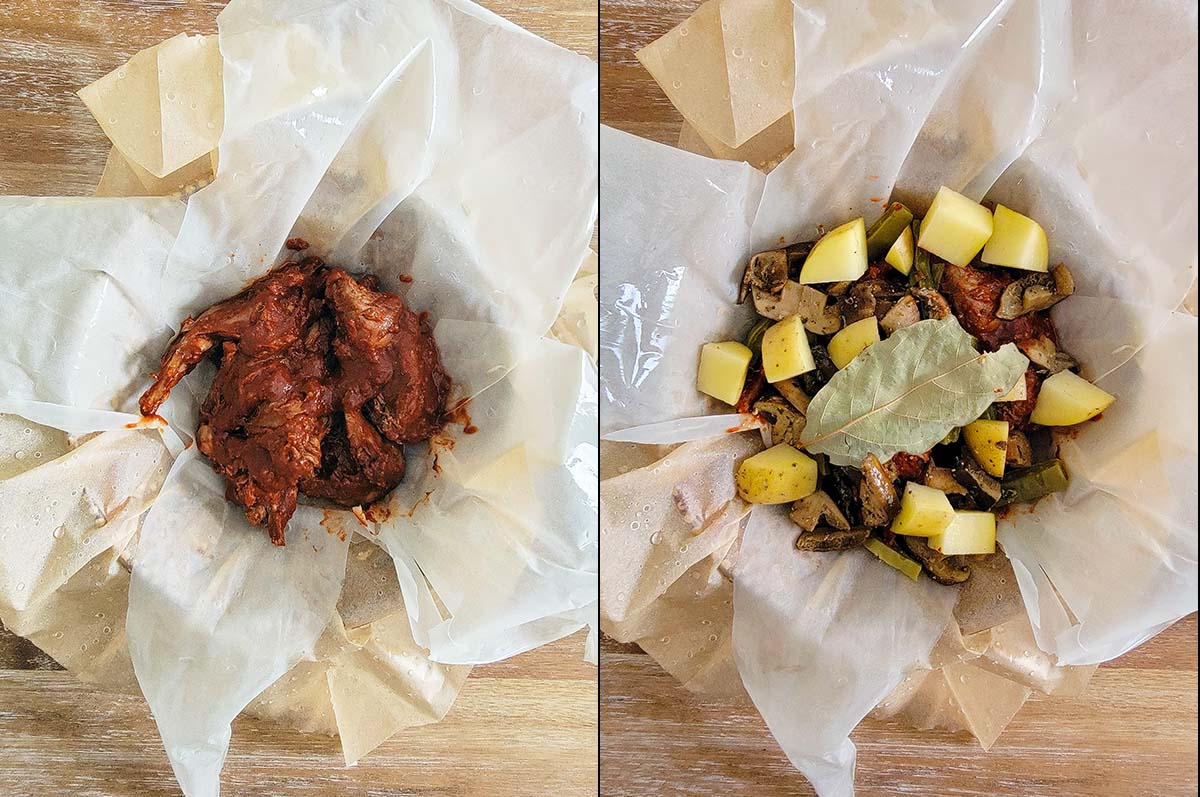
But like anything, there are wrinkles — mostly when one thing, usually the meat, takes a lot longer to cook than whatever else is in the bundle.
In this case, you par-cook the thing, meat, potatoes, etc., and then add it to the bundle to steam.
Endlessly Versatile
I’ve seen mixiotes recipes with damn near everything inside, from mushrooms and vegetarian options to fish, lamb, chicken, beef, and, most interestingly, lots of different kinds of game.
Because this method is so ancient, game remains a favorite for mixiotes. So I was overjoyed to see a recipe that used, of all things, squirrel! It’s tucked away in a book called Recetario de la Huasteca Hidalguense, and it’s a stripped down version of modern mixiotes.
I am using squirrel for these mixiotes, but don’t get all hung up on that. Chicken, turkey legs, rabbit, any white meat poultry like pheasant, grouse or quail will work with this recipe.
And use this method as a model for mixiotes with red meat or fish. Only the cooking times will vary.
You’ll want the meat or fish, plus interesting things to go with it, in your bundles. I suggest:
- Potatoes or another tuber. They show up a lot in mixiotes recipes.
- Nopales, pre-cooked to remove the mucilage. Here’s how to prep nopales for cooking.
- If you happen to see them in a Mexican market, peeled and quartered Xoconostle fruits, which are also very traditional. I know, esoteric, but hey.
- Onions and garlic, sliced, chopped or what have you.
- Definitely bay leaves, or better yet, dried avocado leaves, which are more traditional. You can buy avocado leaves online or in most MexiMarts.
- Mushrooms are a great option. Use any fresh ones you like, or, if by chance you have access to huitlacoche, a/k/a “corn smut,” use that.
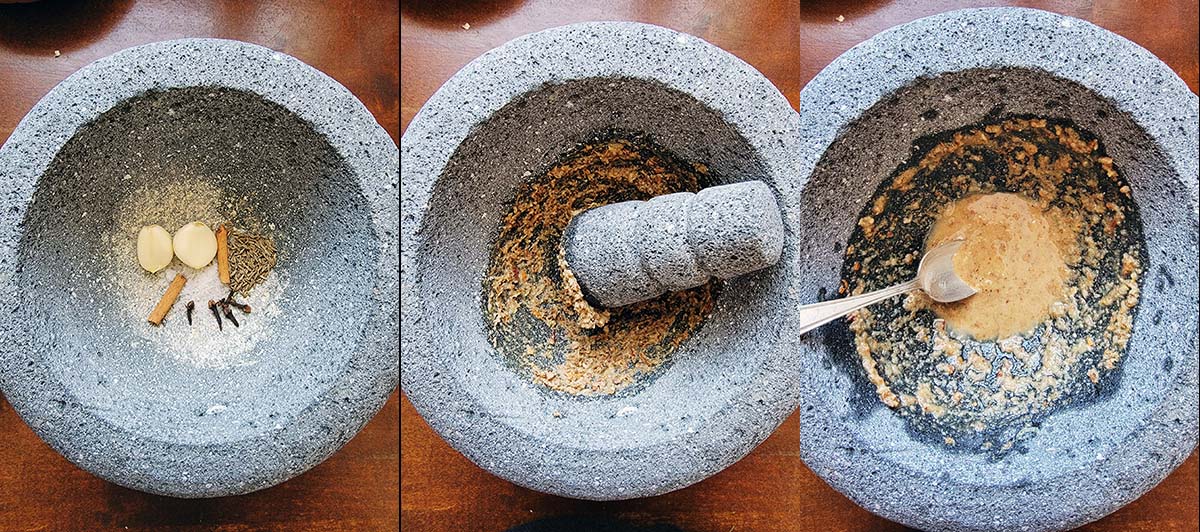
One tip that makes a difference is if you can crush the spice mix that goes into your adobo marinate. Crushing releases more aroma than grinding with a burr grinder, and mixiotes are all about aroma.
The adobo you use for the meat keeps for weeks in the fridge, so you can make it ahead. You can also marinate your meat for up to two days before you steam your mixiotes.
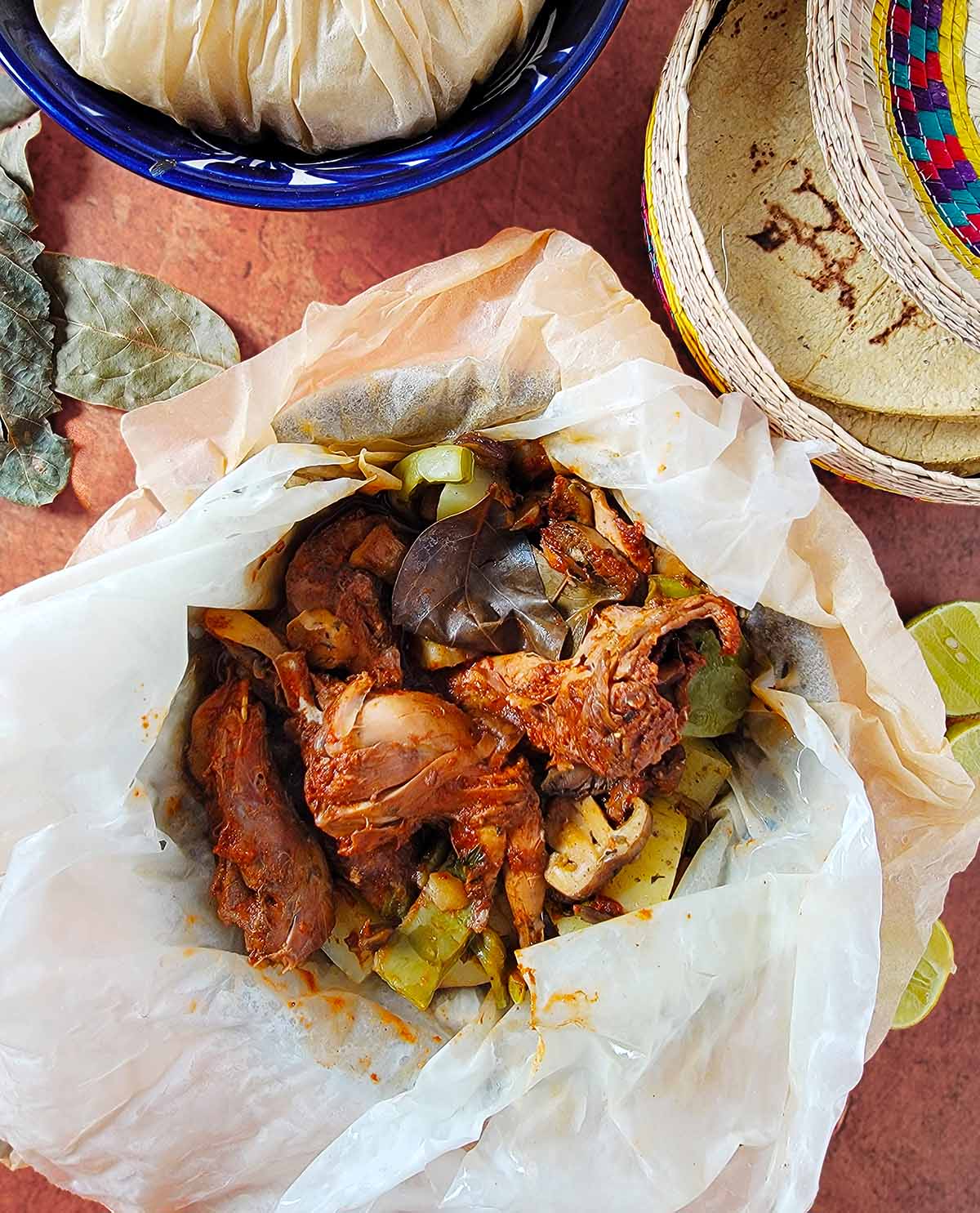
Serving and storing
You want to serve your mixiotes with lots of corn tortillas — always corn with this one, not flour — and maybe a soup to go as another course. My top choice would be something like caldo tlalpeno, which is from the same area of Mexico.
If you have leftovers, you can keep the bundles tied and resteam them, or you can dump them into a container. I really like eating mixiotes as leftovers cooked in a pan with torn-up, stale tortillas, a little like chilaquiles.
Leftovers will keep a week in the fridge, and they freeze well.
Mixiotes
Equipment
- 12 sheets of parchment paper, to wrap mixiotes
- aluminum foil, as needed
Ingredients
ADOBO
- 4 ancho chiles, stemmed and seeded
- 4 guajillo chiles, stemmed and seeded
- 3 dried chipotles, stemmed
- 1/2 white onion, cut in half to make wedges
- 3 cloves garlic, unpeeled
- 1 teaspoon cumin seed, or 1/2 teaspoon ground
- 5 cloves, or 1/4 teaspoon ground
- 1/2 inch piece cinnamon, or 1/2 teaspoon ground
- 1/4 cup lime juice or white vinegar
- Salt, smoked if you have it
FILLING
- 1-2 pounds meat in pieces, chicken, rabbit, pheasant, squirrel, grouse, quail
- 1-2 pounds Yukon Gold or other yellow potatoes, cut in chunks
- 8 ounces prepared nopales (see headnotes for prep)
- 8 ounces fresh mushrooms, any kind you want
- 6 avocado or bay leaves
- Corn tortillas, to serve with the mixiotes
Instructions
ADOBO
- Set the dried chiles in a bowl and pour boiling water over them. Cover the bowl and let them rehydrate. Meanwhile, if you're using the whole spices, toast them over medium-high heat in a dry pan until fragrant, then move them to a mortar and pestle. Now set the quarters of white onion and the unpeeled garlic in the pan to sear. You want both cut sides of the onion to blacken, and char marks on all sides of the garlic cloves.
- Peel the garlic and set inside the mortar and pestle. Add a healthy pinch of salt, about 1 teaspoon. Grind all this into a paste. Add the lime juice or vinegar and use it to clean the mortar as you move the mixture to the bowl of a blender.
- Add the chiles to the blender bowl, too. Roughly chop the onion and add it to the blender. Pour in water or broth and start blending. You want a puree about the thickness of barbecue sauce or house paint.
- OPTIONAL STEP: Push the adobo through a fine-meshed strainer to remove bits of seed and skin from the chiles, which are not digestible.
- BLENDER METHOD: If you don't have a mortar and pestle, use ground spices and skip the toasting. Add all ingredients to a blender and puree.
MIXIOTES
- You'll likely have more adobo than you need; it keeps for weeks in the fridge. Coat the meat with some adobo and put this in a covered container for at least 4 hours, and up to 2 days. I prefer a full day.
- When you are ready to make the bundles, soak the pieces of parchment paper for 10 minutes or so. Use this time to take the meat out of the fridge and chop vegetables.
- Set some foil in a bowl. Set 2 pieces of wet parchment paper inside that. Divvy up the adobo-coated meat into 6 portions, and put a portion in the open bundle. Add some of the potatoes, nopales and mushrooms to the bundle. Sprinkle a little salt over it all. Add an avocado or bay leaf or two. Fold up the parchment paper into a bundle, and tie it off with twine or a twist tie. Fold the foil over the bundle to double seal it. Repeat with the remaining bundles.
- Set a steamer insert into a large, lidded pot. Fill water up to the level of the steamer insert and set the temperature to high. Arrange the bundles on the steamer, cover the pot and steam for 1 hour and 15 minutes.
- Carefully remove the bundles and set them on a board. Remove the foil and set each parchment bundle on a plate. Let your guests open them at the table. Serve with hot corn tortillas.
Notes
- If you don’t have a steamer insert for your pot, a great option is to set the bundles on corncobs, stripped of their kernels; this is done in Mexico. You could also put the bundles on a plate set over an empty can.
- For the chipotles, I prefer the tan chipotle meco, but morita is fine. If you can’t locate dried chipotles, use 2 canned ones with their adobo. Note. 2 chiles, not 2 cans.
- If you have smoked salt, especially smoked mesquite salt, use it.
- Here’s how to prep nopales. Prepped nopales can be made several days in advance.
Nutrition
Nutrition information is automatically calculated, so should only be used as an approximation.
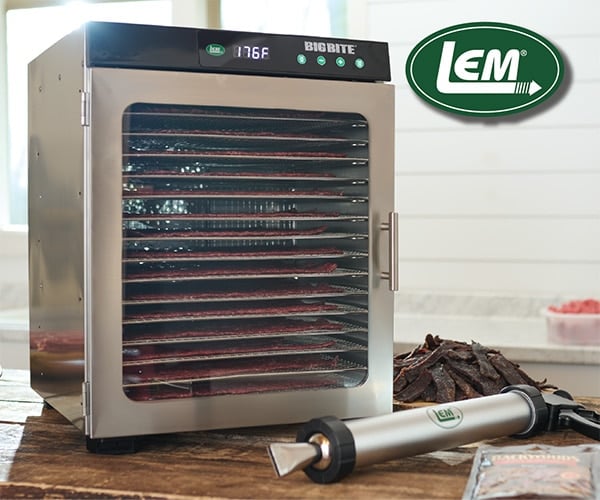
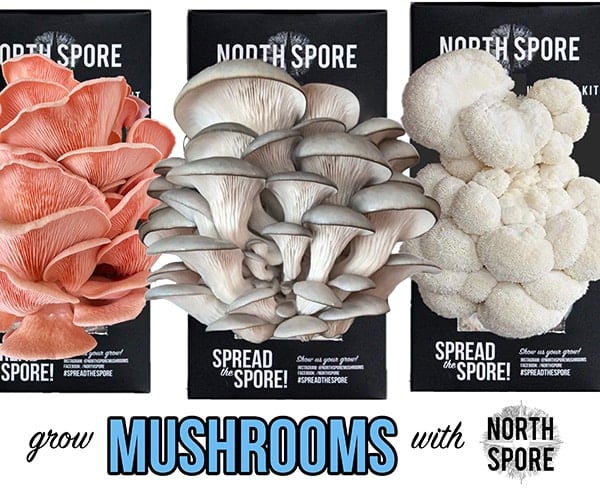

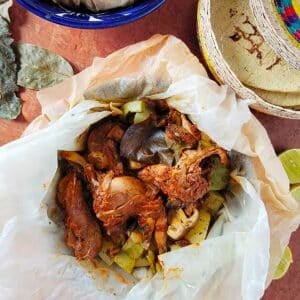

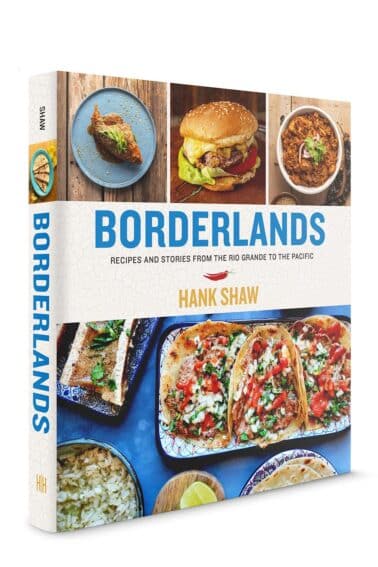
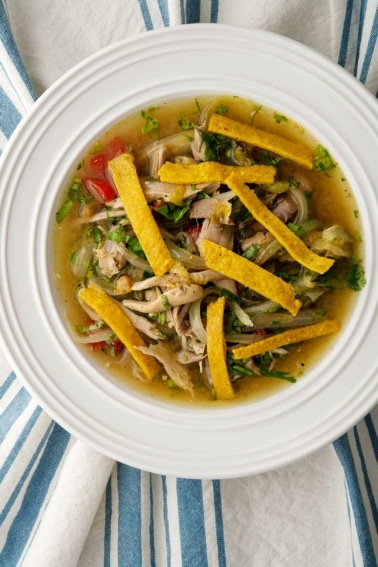
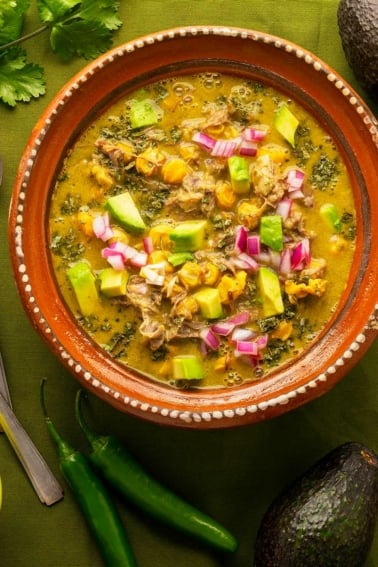
All recipe are wonderful , thanks so much by sharing this with us
Where can you find nopales in the Midwest?
Veronica: Any Mexican market.
A great reminder of a lovely way of cooking, thanks. We had done something similar on a camp fire with aluminium foil and thrown it in the cooler embers of a fire, using sausage, potatoes, other veg, onion, garlic, butter – the kids get really excited to make and eat their own parcels. But I like your parchment idea better as the first layer.
I brought several bags/types of “recados” from a market in Merida, and this seems like an interesting way to put them to use. I would most likely use chicken, but wonder if the cook time should be reduced since it shouldn’t take that long to get the meat cooked through. I guess I’ll just have to “play” around a bit to get the timing just right! Thanks for a great suggestion.
Judy: Try it with an hour. Steaming is a little slower than boiling, most times, and the mixiotes recipes I’ve seen with potatoes and chicken all say about 1 hour.
Thanks for this, Hank, it’s an unfamiliar approach. What do you think about substituting yuca for the potatoes? It’s plentiful in Mission (San Francisco) markets but it often turns out a little too dry when I cook it. Steaming might give better results.
Eric: Will definitely work, but I am unsure of the cooking times. I can’t remember if yuca takes longer or shorter to cook than potatoes. I think it’s longer.
Sent a donation to your PO Box – It was returned. Please provide accurate address so I may resend. Thanks, Jody
Hi Jody, thanks so much for the thought! But I am doing OK right now. I really appreciate you thinking of me.